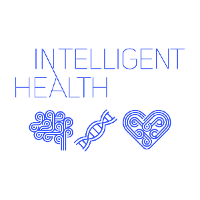It’s no secret that the opportunity in unearthing hidden insights in healthcare data is huge.
“The biosciences are swimming in data. The total amount of knowledge in healthcare doubles every 73 days, and it turns out that scientists can now create more information in a couple of weeks, than they could create in a lifetime only three years ago.”
Those are the words of Toby Cosgrove – former CEO of (the) Cleveland Clinic who, last year, joined Google as Executive Advisor to the Google Cloud Healthcare and Life Sciences team. His mission is to bring together healthcare practitioners and engineers to collaborate and realise the potential that healthcare data presents.
“With all this data, first of all it’s a problem keeping track of it all, and secondly, we now have the opportunity to analyse it to gain knowledge,” Cosgrove says. “And so the tech companies are beginning to bring their capabilities to help healthcare. First of all they have to build the capability to store information, mainly in the cloud, and then to retrieve that information and apply AI and machine learning to it, in order to give us tremendous new knowledge. They can make a huge difference to healthcare delivery, make it more efficient, increase the quality of healthcare, and save us money.”
Indeed, the biggest technology companies such as Amazon, Google, IBM, and Microsoft are all developing existing AI capabilities and applying them to the healthcare sector. This year, Microsoft unveiled Microsoft 365 for Hospitals for internal communications and an Azure API for interoperability in health record sharing; and Amazon teamed up with J.P. Morgan and Berkshire Hathaway to create Haven, a venture focusing on data-powered innovation in primary care access, health insurance costs and making prescription drugs affordable. Google has both their Google AI division which has a dedicated health strand, as well as Verily, their life science outfit; and IBM continues to develop Watson Health, which seems to have a more broad stroke approach to healthcare data solutions, applying it to everything from patient-doctor interactions, to drug discovery.
Outside of Europe and the US, China’s biggest technology giants Tencent and Alibaba are investing and innovating at pace, to ensure they are also at the forefront of the AI healthcare revolution. Alibaba’s AI cloud platform “ET City Brain” uses AI algorithms to predict healthcare outcomes and its Health Information Technology division is focusing on industry-wide services; whilst Tencent is investing in genomics and personalised medicine with its Miying healthcare AI platform, assisting healthcare institutions in AI-driven cancer diagnosis.
Whilst these big technology companies clearly have the technical chops to be storing, analysing and applying machine learning to the swathes of healthcare data, questions remain as to their expertise in delivering healthcare and the unique challenges that the sector is up against. “Healthcare is very complicated. It’s highly regulated, it is the biggest industry, for example, in the US, there are lots of regulations around privacy and information, and there are many problems in healthcare which people who are basically engineers don’t have experience with,” Cosgrove explains.
And it’s not just about regulation and size, but about variance of challenges, a system built on traditional methods and infrastructure which isn’t the easiest to ‘plug in to’. There’s also the relative reluctance and lack of confidence from staff to shift to using new tools and systems which don’t fit smoothly into already existing workflows. In short, the healthcare system is complex, and without having insider experience of the challenges, traditions, staff incentives and general mindsets, products can easily lose sight of the reality of working in the industry.
Equally though, healthcare professionals don’t always see the potential of the technology, and a lack of exposure to its power in time-saving, intelligence gathering and process automation.
“They are two completely different capabilities, and I don’t think people in healthcare really understand the capabilities of the engineers and technology, and I don’t think the engineers and the technology understand the intricacies of healthcare.”
So how can the technology companies better understand healthcare, and vice versa? Is it about going to conferences? Is it about talking to patients? Is it about working out of hospitals? Cosgrove replies: “All of the above. Go into the operating rooms, the clinics, so they can understand the sort of things we have to deal with on a day-to-day basis.”
There are many examples of technologies in the past which are technical feats but market flops – such as electric Segways which are cumbersome to carry and make the riders look daft, or the famous failure of Google Glass. But with the healthcare system, it’s not as simple as running a few focus groups and reading industry reports.
We cannot afford to miss out on the potential of AI, big data and cloud technologies due to a lack of collaboration. The opportunity in combining the expertise across healthcare and technology is huge, but it seems the opportunity might easily be missed if real-world experience, both in healthcare and in technology enterprise, isn’t taken into account.
This article is written in the lead up to Intelligent Health 2019 (11th-12th September)
The world's leading AI in Medicine Summit
Intelligent Health is the only large-scale, global summit focused purely on AI in healthcare
gathering the world’s brightest AI health brains from pharmaceutical, biotech, MedTech,
health provisions, clinicians, tech companies, start-ups, investors and scientists every
September in Switzerland.
Get ready for two days packed full of first-hand case studies, lively debates and groundbreaking announcements to advance discussions on how AI can be used to prevent and solve
some of the world’s greatest healthcare problems, and improve the health of the human
race.
Intelligent Health AI
September 11th-12th 2019
Basel Congress Center, Switzerland
intelligenthealth.ai


